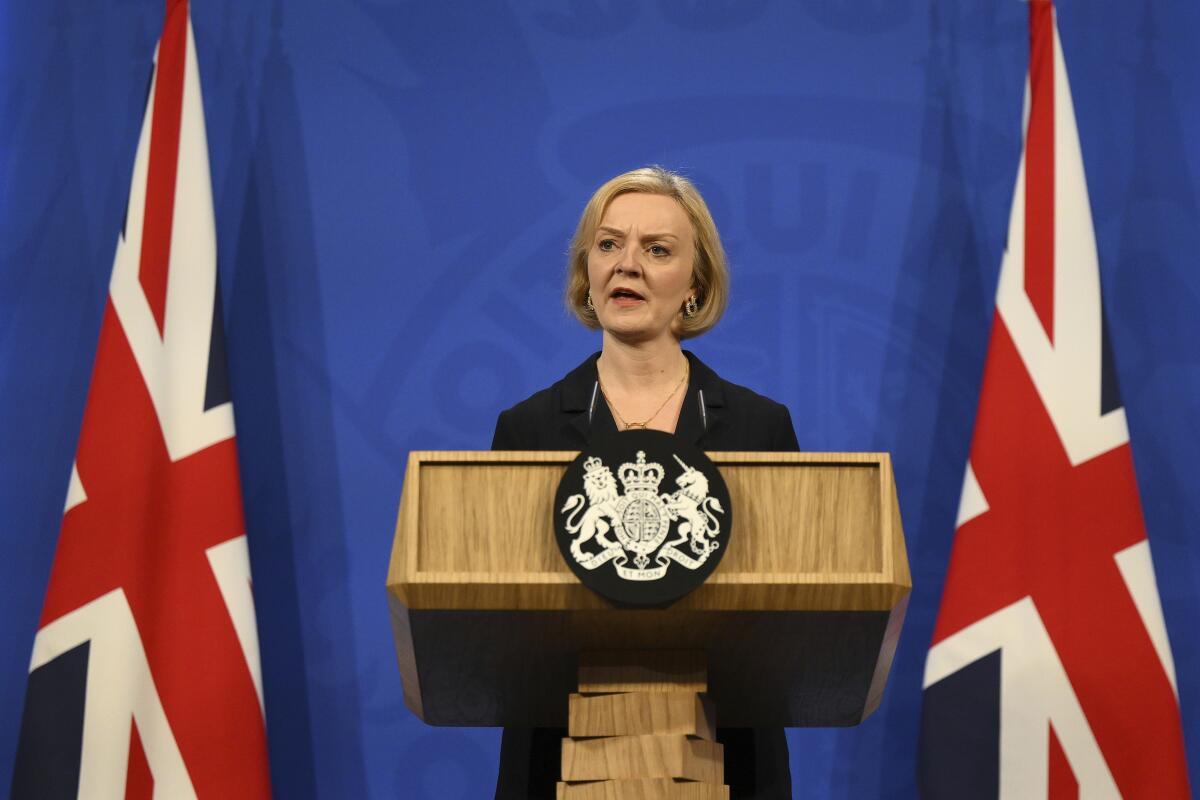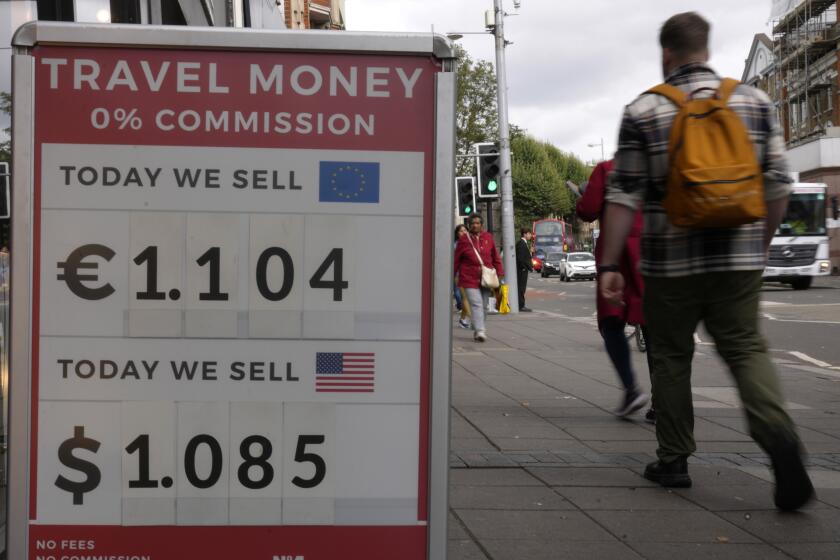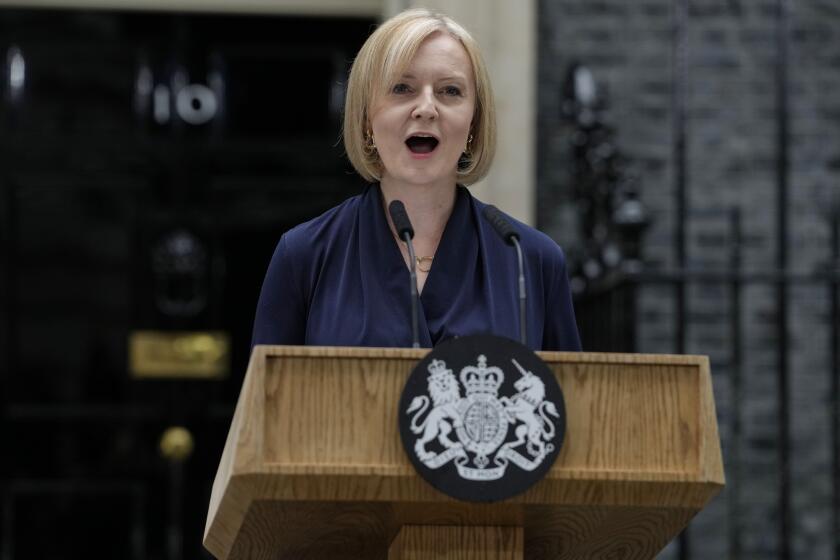In humiliating reversal, British leader Truss drops tax cuts, fires her finance minister

- Share via
LONDON — Embattled British Prime Minister Liz Truss sacked her own finance minister and reversed course on sweeping tax cuts Friday as she tried to hang onto her job after weeks of turmoil in the financial markets.
At a hastily arranged news conference, Truss said she was acting to “reassure the markets of our fiscal discipline” by keeping a planned increase in corporation tax that she previously said she would cut. Truss also fired Kwasi Kwarteng as finance minister, replacing him with former Cabinet minister Jeremy Hunt.
Truss, who has been prime minister for barely a month, is trying to restore order after three weeks of turmoil sparked by her government’s tax-cutting “mini-budget.” The Sept. 23 statement sent the pound plunging to record lows against the dollar and led the Bank of England to step in to prevent a wider economic crisis.
But it may not prove so simple. Truss brushed off a question about whether she should resign, saying: “I am absolutely determined to see through what I have promised.”
But her brief, downbeat news conference is unlikely to have reassured her ruling Conservative Party that she is in control.
The pound fell by around 1% after Truss’ statement to $1.119.
A stumbling British pound and surging U.S. dollar have left Brits feeling glum and plenty of Americans feeling gleeful.
Hunt is a government veteran who has served as foreign secretary and health secretary. He ran unsuccessfully to lead the Conservative Party in 2019, in a bid to become prime minister, but is widely respected within Conservative ranks and may offer some stability as Truss seeks to shore up her base.
Truss had been under intense pressure to scrap some of the 43 billion pounds ($48 billion) in unfunded tax cuts that roiled financial markets and led the Bank of England to make an extraordinary intervention to stabilize the falling pound.
Truss, a free-market libertarian, came to power in early September pledging to cut taxes to spur growth. But her ability to deliver on that commitment is now in doubt.
Abandoning a promise to halt her predecessor’s plan to increase corporation tax from 19% to 25% marks a major departure for Truss — an acknowledgment that the markets needed to be reassured of fiscal discipline. The change reduces the bill for her program by about $20 billion a year.
Queen Elizabeth II has been depicted on British banknotes and coins for decades.
Some $28 billion of tax cuts remain unfunded.
James Athey, the investment director at Abrdn, described the government plan as a “U-turn on its decision not to U-turn on its profligate tax-cutting policies.″ Rumors that a reversal was in the offing calmed markets, he said.
“The risk now is that investors have forgotten that there are significantly more problems than just an ill-advised and ill-timed fiscal easing to deal with,″ he said.
“Inflation is at multi-decade highs, government borrowing is huge; as is the current account deficit. The housing market is likely to suffer a hammer blow from the jump in mortgage rates, and the war in Ukraine rumbles on,” he said. “We may well be through the worst of the volatility, but I fear that the U.K. is nowhere near out of the woods.”
New British Prime Minister Liz Truss says she will cap domestic energy prices for homes and businesses to ease the impact of spiraling energy costs.
Conservative lawmakers are agonizing over whether to try to oust their second leader this year. Truss was elected by Conservative Party members to replace Boris Johnson, who was forced to resign in July.
Some reports suggest that senior Conservatives are plotting to replace Truss with a joint ticket of Rishi Sunak and Penny Mordaunt, her two closest rivals in the summer contest for leadership of the party, though it’s unclear how that could be achieved.
More to Read
Sign up for Essential California
The most important California stories and recommendations in your inbox every morning.
You may occasionally receive promotional content from the Los Angeles Times.













